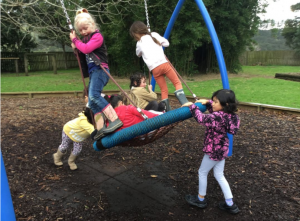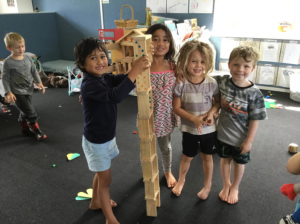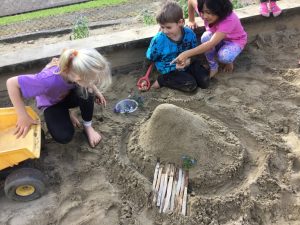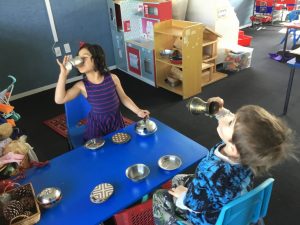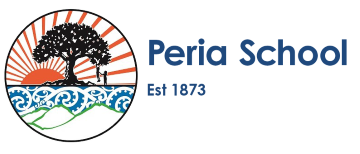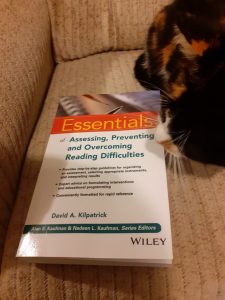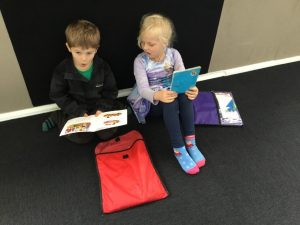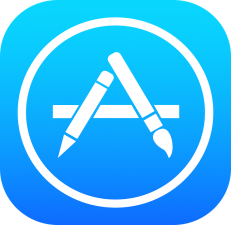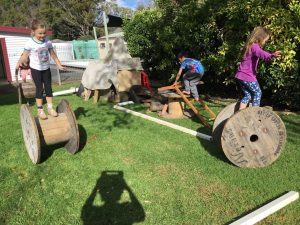Te Puna
Most communication in Te Puna will be done through email and in person, but this website will be here for basic information and links.
Daily Timetable
8.30am Morning Routine (date, timetable, karakia) & Roll Call
8.45am Fitness
9am Mathematics
10am Mat Time
10.15am Playtime
10.35am Feed & Read
10.50am Literacy & Learning Through Play
11.40am Swimming (term 1 & 4) OR Handwriting (term 2 & 3)
12.15pm Longer Playtime
12.40pm Kai Time
1pm Literacy & Learning Through Play
2.25pm Home Time
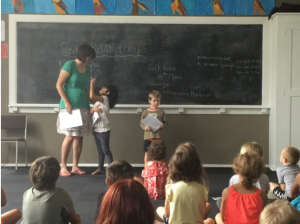
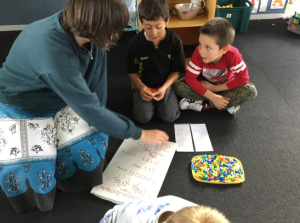
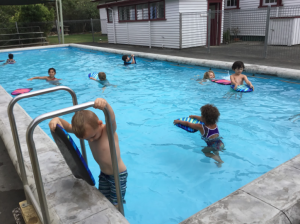
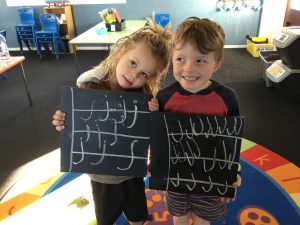
Structured Literacy
In Te Puna we follow a structured literacy approach. Instead of jumping straight into reading books, we follow a series of progressions in Te Puna. We begin reading by learning the sounds of the following 8 letters: m, s, f, a, p, t, c, i. We move from letter sounds, to words, to sentences, to reading actual stories.
Ask your child to show you their writing book and reading box next time you're in Te Puna!
Some further information about literacy:
Heart words: these are words children have yet to be explicitly taught all the letter sounds of yet. Therefore they need to memorised off by heart. While practiced regularly at school, they are also glued into your child's homework book and should be practiced daily at home. Some ways you can help your child learn their words are:
- Saying the sounds in the word and blending them together. E.g. /m/ /i/ = my
- Practicing them before your child reads their sentence/book
- Writing it and then reading it
Reading levels: Readers progress through stages 1-7 learning all the sounds of the alphabet and some digraphs and consonant blends before transitioning to more traditional books. Learners come to school with different experiences and learn at different rates but it is generally expected that they reach the end of stage 5 by year 1 (the equivalent of Green on reading colour wheel) and are towards the end of stage 7 (the equivalent of Turquoise on the colour wheel) by the end of year 2.
Homework: Every week homework is sent home with our students. Our homework is designed as a review of learning already covered in class and lets students review their learning with you at home. E.g. If your child is learning about the digraph (2 letters, 1 sound) /sh/ at school they will be sent home with exercises that practice writing and reading words with /sh/ in them. Try to spread out homework over the week and do a little bit every day, instead of all at once. Please bring homework books in every Friday so that Whaea Dominique can mark it over the weekend. New homework will be sent home on the following Monday.
Reading at home: In Te Puna students don't start bringing home reading books until they have learnt the first 8 letter sounds and know how to blend them together to read simple 3 letter words such as 'sat' and 'Tim'. While at this stage please practice the following 8 letter sounds with your child: m, s, f, a, p, t, c, i. Once they begin reading they will begin taking home books. Often they will take the same book home with them more than once. That's a good thing! Rereading books is great for comprehension, vocabulary, fluency and confidence. It is also extremely important that YOU read your child books every day and that they see you reading around the house as you are your child's greatest role model.
Other Useful Learning Links
Learning Through Play
“Play is the work of the child.”
Maria Montessori
Not only does play allow for a smooth transition between school and early childhood, it is one of the most rich and imaginative activities a child can do. Play is extremely important for a child’s development - it’s how they learn! It has to do with a child’s brain development. A child’s prefrontal cortex does not usually come online until they are about 7-8 years of age. Until then the limbic system or emotional brain is in control and children see things very differently from adults, who have fully mature brains. A young child lives in a very emotional world. In order to meet children’s needs we provide a responsive, nurturing, and empathic environment in Te Puna, and give plenty of opportunities for play.
Learning Through Play runs throughout most of the day, with small groups of children working with the teacher and then returning to play. In between we have ‘mat time’ and explicit instruction, however I aim to give the tamariki at least about an hour of uninterrupted play a day.
As children play they cover many aspects of the New Zealand Curriculum – literacy, numeracy, science, social science, technology, PE, health and art. The Key Competencies of managing self, contributing and participating, thinking, relating to others and using language, symbols and texts are an essential part of the classroom and Learning Through Play.
Some other skills learnt through play:
- Executive function (self control, organisation & paying attention)
- Creativity and problem solving skills
- Communication skills such as cooperation, compromisation, conflict resolution, turn taking and sharing
- Oral language skills
- Self confidence and being able to take a risk and give things a go
- Expressing emotions and understanding situations they’ve experienced by acting them out
- Improved mental health
- Fine and gross motor skills
- And many, many more!
